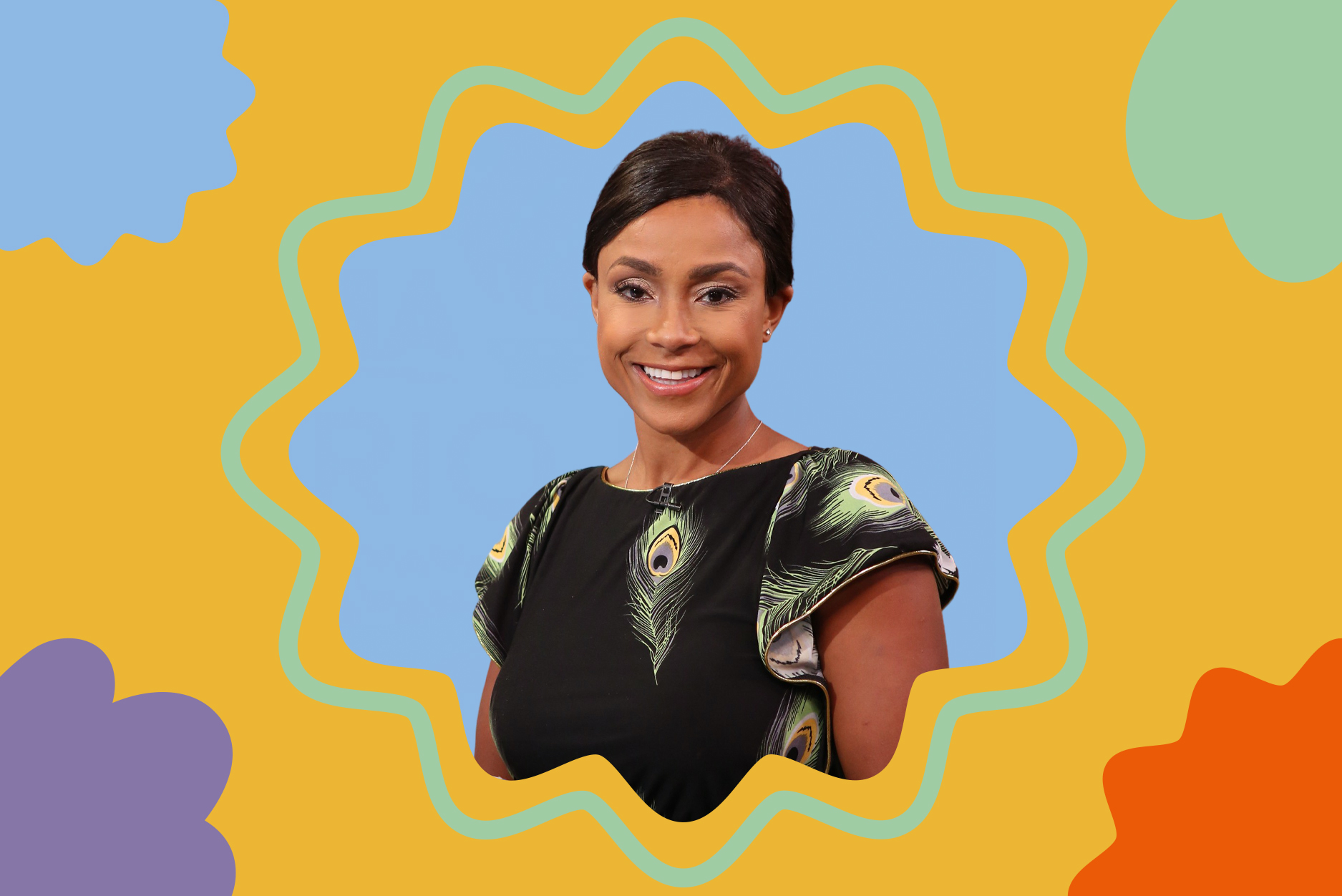
At 15, Dominique Dawes competed in her first Olympics, performing stunts in her floor routine that prompted the crowd to erupt in cheers and earned her a standing ovation. By 20, Dawes became the first African American to win an Olympic gold medal in gymnastics. Twenty-five years later, Dawes, who says she "lived and breathed gymnastics" for most of her life, watched Simone Biles step back from the 2021 Olympics in Tokyo to prioritize her mental health. It also highlighted the toxic culture of competitive youth sports. For Dawes, however, it was no surprise.
"I was a gymnast for 18 years," says Dawes. "My mom would pick me up from practice, and many times I was in tears." Because her mom would tell her if she cried, she wasn't coming back to gymnastics practice, Dawes says she "would cover up the tears." After training, when her mom would ask her how practice went, she'd say, "I'm fine." The truth was much more complex.
"While I loved being around my teammates in practice, it was very much a full-time job with an enormous amount of stress, an enormous amount of anxiety, and an enormous amount of pressure," she says.
Unhealthy pressure on kids is common in competitive sports and can follow them into adulthood, as it has for Dawes. For years the former gymnast, who now owns a gymnastics academy and co-produced Golden: The Journey of USA's Elite Gymnasts on Peacock, had issues trusting herself. She also experiences anxiety and mental stress. That's why she speaks openly and publicly against the potentially damaging pressure young athletes face.
To help parents learn how to support their kids participating in competitive sports, the mom of four offers parents some suggestions for not only reducing the pressure that comes with the territory but protecting kids from the harmful effects of it.
Watch for Signs of Stress
When kids aren't having fun and are just going through the motions, the signs are there. "You can tell if your child is enjoying what they're doing," says Dawes. "You can see it in your child: the fear, the control, the anxiety, the silence." Crying—on the way to and from practice—is another sign that things are not OK with your athlete. Don't just chalk it up to heightened pre-teen and teen emotions.
Parents can spot these signs of stress by observing and listening leading up to, during, and after practices and games. Dawes suggests parents ask direct questions about how practice and games went and pay special attention to negative responses. Nonverbal clues, such as posture, can also give clues about your child's mood. Silence counts too.
The images kids do see of athletes are often about the intensity and glory of sports. However, Dawes says kids need a realistic picture that portrays the mental stress of sports so they know what they're feeling is not out of the ordinary. When she was competing in the 1996 Olympic games in Atlanta, the audience saw her awe-inducing routines. "You didn't see me having an emotional breakdown before marching out of the Georgia Dome," she says. "They're not going to show you that."
Give Them the Right to Refuse
Gymnastics, especially at the elite level, is a sport "filled with a great deal of fear, intimidation, and silence," Dawes told NBC News. Highly competitive youth sports overall are a ton of pressure for a child to handle. Dawes says young athletes need healthy relationships with their coaches and parents to make sure they're comfortable speaking up about what they're feeling and experiencing. Simone Biles is a great example. "Simone and others are making it OK for kids to say to their parents, 'I'm not feeling OK,'" she says. "And it doesn't make you a bad person."
Dawes encourages parents to permit their kids to set boundaries with adults, an experience she didn't personally have. "It took me nearly until I was almost 30 years old for me to comfortably say 'no,'" she says. "There were many people and places and things in my life that I felt I should have said 'no' to, but my inner voice was muted."
Parents can help protect their young athletes by empowering them to use their voices to refuse to do something that makes them uncomfortable.
Encourage Childhood Activities Outside the Gym
Dawes is adamant that kids need something outside of their sport. In her new gym, she has a rule against specializing in one sport. "I don't want to see them or their kids living at my gym," Dawes says of the gymnasts who train at her gymnastics academy. "I don't want them to do gymnastics twenty-four-seven. I want them playing other sports, playing the violin, participating in their church group, having friends that don't wear leotards."
Many parents and coaches still believe that long hours at practice make a superior athlete. However, Dawes says it only makes an adult who has a tough time discerning what a "normal" childhood looks like. Her own "Olympic switch," as she calls it, is still difficult for her to turn off. It's moments like when her kids are running around the yard playing, and she's ready to line them all up for bed that she remembers how the tireless practice and programming she experienced still haunts her. Her husband, Jeff, balances her instincts to give the kids too much structure.
"He reminds me I didn't have a normal childhood," she says. He tells her, "You were in the gym for 36 plus hours a week. It was a full-time job and too much pressure and too much structure," she recalls. "Let the kids play."
It's all about balance and health. Dawes says a mix of sports, downtime, and free play protects kids from burnout, injuries, and linking their identity to the sport they play. Even the most dedicated child athlete needs a break.
"Your children only have one childhood," she says. "Let's make it one that is focused on building the values, characteristics, and intangibles to help them in life to grow up to be happy, healthy adults."





